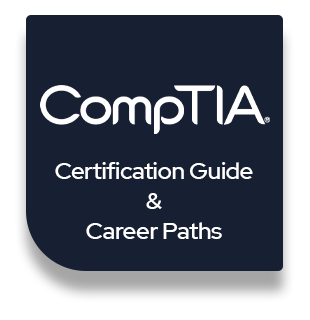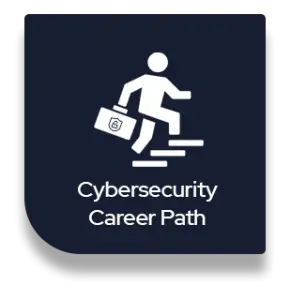This CompTIA Certification Guide and Career Paths article will cover certifications offered by CompTIA and how to use them to advance in your career and upskill to make you more competitive in the job market.
CompTIA is a nonprofit trade association that includes 3000 business partners and 2000 members organizations. Focusing on educating and certifying IT professionals, their headquarters are near Chicago, and they are prominent figures in public policy advocacy, as well as philanthropy.
CompTIA certifications are one of the most recognized IT, designed to educate and upskill IT technicians to ensure success when supporting and managing IT infrastructures. Grouped by skill set, the certifications fall into four categories: Core, Infrastructure, Cybersecurity, and further Professional certifications.
Extremely popular, the CompTIA A+ is an entry-level certification created by IT industry professionals designed for PC service technicians. Validating skills needed for most entry-level IT jobs is earned by passing two exams. It covers a broad range of knowledge required by IT technicians, including customizing, operating, installing, and maintaining personal computers. Sponsored by the Computing Technology Industry Association, the certificate isn’t just about computer repairs and is relevant to many IT job roles today. The certification prepares candidates to problem-solve a wide variety of issues, including mobile services, networking, operating systems, and security.
The best part about CompTIA certifications is that they’re vendor-neutral; this has set CompTIA apart from other IT certification bodies because most of them focus on specific technologies and vendors, severely limiting your choices.
CompTIA offers certifications for core, infrastructure, and cybersecurity career paths.
CompTIA Core Certifications:
Entry-level IT professionals should start with the core certifications: A+, Network+, and Security+.
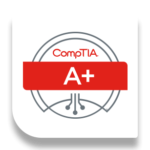 CompTIA A+ Certification
CompTIA A+ Certification
The CompTIA A+ certification is considered an “entry-level right of passage for IT technicians.” This certification is designed for folk looking for a profession as an assist desk, service core, or networking technician, and it covers laptops and computer hardware, software program set up, and configuration of PC and cell techniques. A+ additionally checks a candidate’s understanding of primary networking, troubleshooting, and safety expertise, which function as a springboard for CompTIA networking or safety certifications or these provided by different organizations.
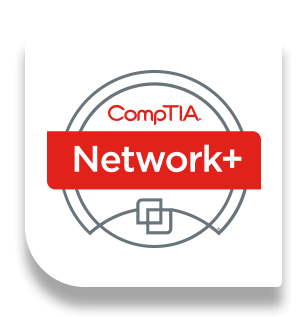 CompTIA Network+
CompTIA Network+
Many IT professionals begin with the A+ certification. However, when you’ve got the expertise and do not feel you need the A+, you might consider the CompTIA Network+ certification, geared towards professionals with at least 9 months of networking expertise. A candidate should be acquainted with networking applied technologies, media, topologies, safety, setup, and configuration.
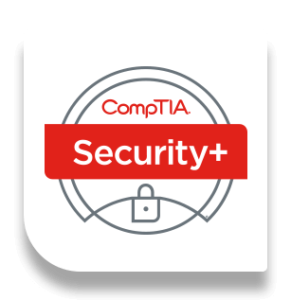 CompTIA Security+
CompTIA Security+
If advancing your career in cybersecurity is your goal, you can skip all the other certifications in CompTIA and start with this one. The Security+ certification teaches you how to handle security tasks in an IT department, including password management, threat neutralization, access control, and others. This certification is considered the key certification cybersecurity professionals.
CompTIA Infrastructure Certifications:
The infrastructure career path by CompTIA deals strictly with network infrastructure concepts.
 CompTIA Linux+
CompTIA Linux+
Just like the name implies, this certification focuses on the importance and application of Linux as a primary programming language in a networking environment. To pass this certification, you will be required to show expertise in Unix commands, shells, installation, security, and other Linux-related concepts.
 CompTIA Cloud+
CompTIA Cloud+
The cloud has become a significant networking component in today’s business world. The Cloud+ certification will allow you to understand the basics of cloud technologies, hybrid storage management, hosting apps, etc., to convert you into a resource that can optimally leverage all cloud-related products.
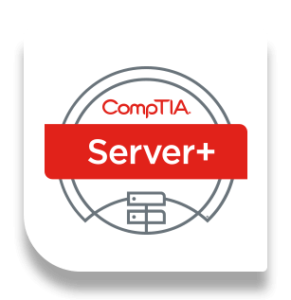 CompTIA Server+
CompTIA Server+
The final certification in this infrastructure pathway is Server+. It primarily deals with developing management and operational skills for hardware and software components of physical and cloud servers. This certification covers all aspects necessary to run a smooth server operation, from configuration to troubleshooting.
CompTIA Cybersecurity Certification Path:
To address the growth of cybersecurity professionals, CompTIA introduced this career path. It covers skills for most cybersecurity roles ranging from mid-level to expert-level resources.
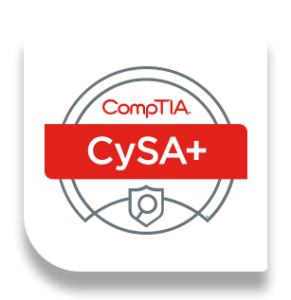 CompTIA Cybersecurity Analyst (CySA+)
CompTIA Cybersecurity Analyst (CySA+)
In handling an organization’s cybersecurity defense policies and frameworks, the CySA+ certification teaches you to use threat detection tools, monitor threats, and prepare mechanisms to protect against vulnerabilities as core security analysts.
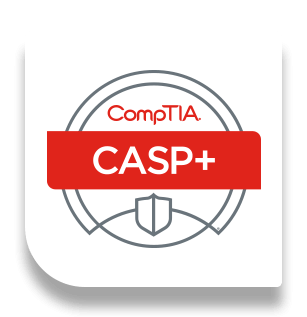 CompTIA Advanced Security Practitioner+ (CASP+)
CompTIA Advanced Security Practitioner+ (CASP+)
Probably the most advanced certification offered by CompTIA, the CASP+ covers everything managers need to build, manage, and run top-grade security solutions in an enterprise environment. As an advanced level certification, the CASP+ requires more than five years of industry experience as a prerequisite to the exam. While that may sound difficult, you can prepare by taking additional online CompTIA certification training sessions.
 CompTIA PenTest+
CompTIA PenTest+
To acquire skills related to penetration testing to secure against zero-day vulnerabilities and bugs and complement the skills learned in the CySA+ certification, opt for the PenTest+ certification.
CompTIA Certifications adhere to different paths to help you progress in your career, each one building upon the last to provide you with clear visibility to keep moving forward. Validating the skills, you will need in your professional career, each one has recommended experience levels. We recommend that you choose the certification that best fits your current experience. Whichever career path you decide to go down, it is vital to highlight the advanced skills and knowledge obtained through these certifications in your resume, especially when applying for a job or advancing in your current job role.
While a CompTIA certification will undoubtedly help you progress in the IT support industry and attract the attention of employers, how much you earn will ultimately depend on the direction you want to go in. As anticipated, the earning potential for CompTIA Certification holders increases alongside additional certifications and experience, and an entry-level A+ qualified professional can earn roughly $50,000 annually.
Respected in the industry and internationally accepted, a CompTIA certification is worth it, helping you land entry-level jobs with the A+ and more prominent industry jobs with the additional industry-specific certifications that are on offer. Furthermore, equipping you with fundamental IT knowledge, a CompTIA certification, no matter which one you choose, will enable you to land more extensive and better roles, providing progression in your IT career.
CompTIA certifications are both respected and recognized within the IT industry and are a great way to progress in your career and move up the ladder. Providing you with a world of knowledge, any CompTIA certification, or a combination of more than one, will make you valuable to every organization and is sure to make you stand out against the competition.

